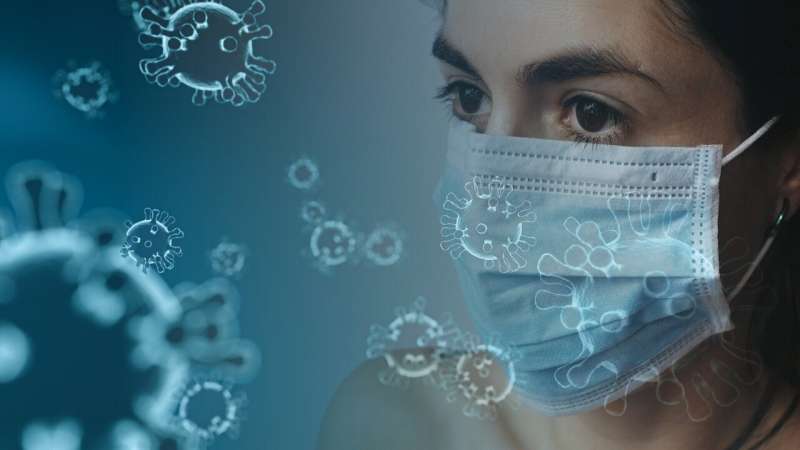Breathing humid and salt-enriched air reduces respiratory droplet generation

Breathing water and salt suppresses the generation of respiratory droplets, and potentially reduces COVID-19 incidence and symptoms, researchers at the Harvard John A. Paulson School of Engineering and Applied Sciences (SEAS), Massachusetts General Hospital, and the National Institutes of Health (NIH) have found.
Two parallel studies were conducted. In one, a randomized 4-arm study of 21 healthy human subjects, the researchers found that the breathing of humid air and the delivery of salt droplets sized to deposit in the nose, trachea, and main bronchi reduced the exhalation of respiratory droplets—recognized to be a primary mode of transport of SARS-CoV-2—by approximately 50% within 10 minutes following hydration. Suppression lasts around one hour on return to dry air conditions, while on exposure to divalent calcium and magnesium salts suppression continues for four to five hours. This clearing of respiratory droplets from the upper airways is similar to that achieved by the wearing of cotton face masks.
In a second study, a preliminary ecological regression study of COVID-19 cases in the United States between January 2020 and March 2021, the authors found a correlation between exposure to elevated airborne salt concentration in locations along the U.S. Gulf and Pacific coastlines with strong inland-oriented wind patterns and suppression of COVID-19 incidence and deaths per capita relative to inland counties by approximately 25%–30%. The researchers accounted for ten potential confounding environmental, physiological, and behavioral variables.
The research was published today in the Molecular Frontiers Journal.
"Multiple mechanisms appear to contribute to the reduction of symptoms of respiratory diseases by the breathing of humid air," said Adriaan Bax, Ph.D., distinguished scientist at the National Institutes of Health and author of a recent article in the Biophysical Journal elucidating the effect of mask wearing on humidification of inhaled air. "This study suggests that among these mechanisms is the reduction of respiratory droplet generation, and that this may play a particular role in the observed effectiveness of cotton face masks at reducing risks of COVID-19."
"The natural and effective cleansing of the air we breathe is a balance between water and salt in the airways and the hydrated nature of the air itself," said David Edwards, Ph.D., formerly Professor of the Practice of Bioengineering (2002-2019) and now Associate at the Harvard John A Paulson School of Engineering and Applied Sciences (SEAS) and founder of the Boston-based health technology startup Sensory Cloud, which is one of the funders of the study. "Breathing humid and salty air appears to promote upper airway cleansing and to be a helpful practice in maintaining respiratory health in the face of the challenges to breathing clean air today."
"Our findings indicate that upper airway hydration can be an effective and broadly accessible approach to the COVID-19 pandemic, and the broader crisis in global respiratory health," said Dr. Dennis Ausiello, MD, director, CATCH, Massachusetts General Hospital, and Jackson Distinguished Professor of Clinical Medicine at Harvard Medical School.
More information: Rachel D. Field et al, Inhaled Water and Salt Suppress Respiratory Droplet Generation and COVID-19 Incidence and Death on US Coastlines, Molecular Frontiers Journal (2021). DOI: 10.1142/S2529732521400058





















